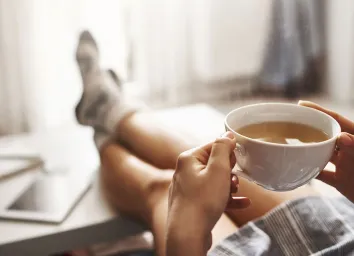20 Weight-Loss “Rules” You Can Stop Following
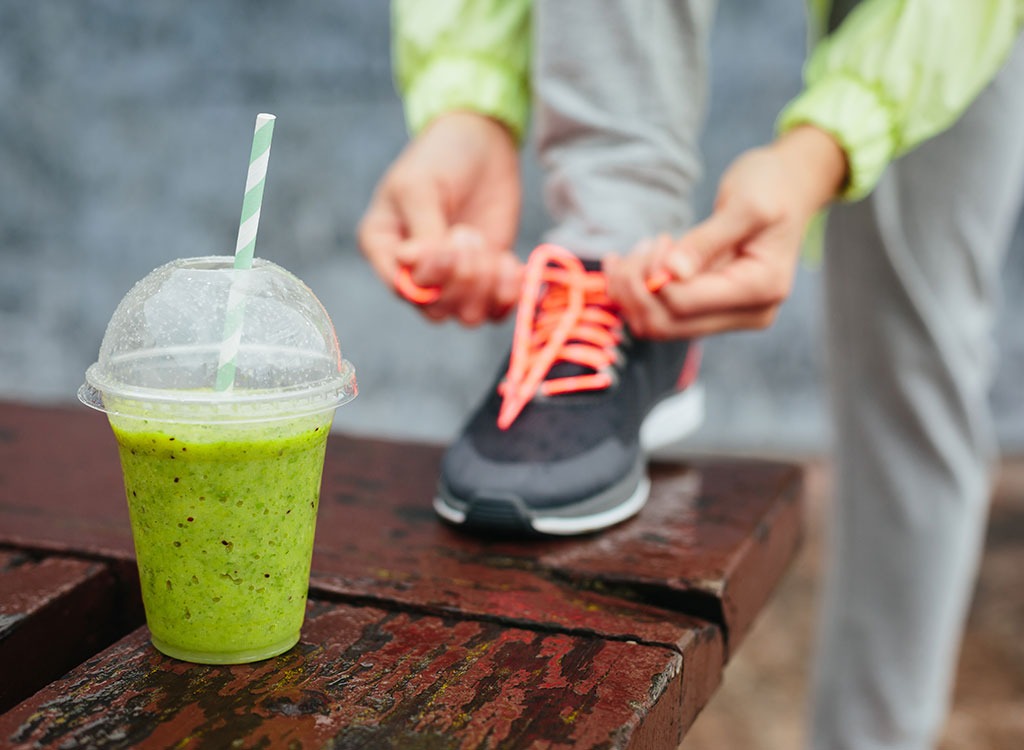
Rules are rules for a reason.
If you took that red traffic light as a “light suggestion,” you’d put your life in significantly more danger than if you had waited behind the white line like you were instructed to do in driver’s ed. So we can agree that rules are important to follow for your health and safety, right? Here’s the catch, though: What if the rules you’ve been following aren’t actually rules? And what if by following these “rules,” you’ve been doing more harm to your body than good?
Well that’s the precisely the case with these faux weight-loss rules. They sound like they’d help you whittle down your waistline, but, in reality, following these myths is actually stalling your slim-down progress. We’ve compiled a few of these classic weight loss “rules” that are begging to be broken. Kick these habits to the curb, and replace them with better advice. Start with these 30 Weight Loss Tips Better Than Counting Calories!
You Have To Exercise—A Lot
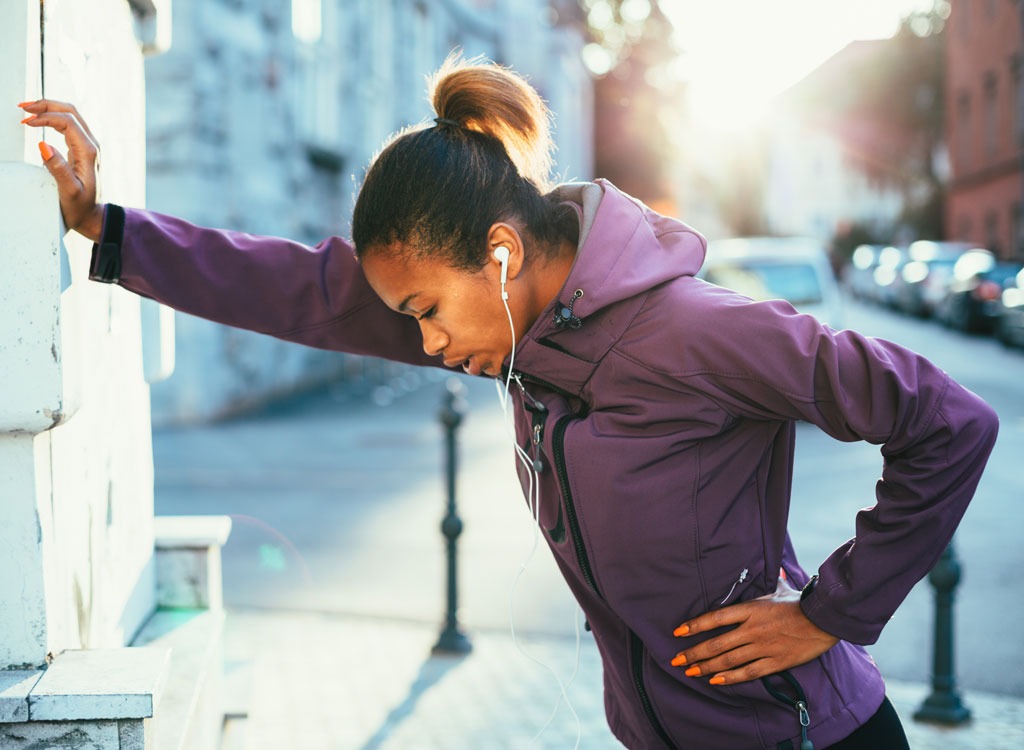
No, you don’t have to spend four hours in the gym every day to lose weight. Firstly, there’s an issue with overtraining—when you start an exercise routine for the first time and go too hard too fast, “you risk injury and creating new imbalances in your body that will cause you major problems down the road,” explains Nika Eshetu, pilates instructor and owner of Atomic Pilates in Los Angeles. And you don’t want to put yourself out of commission after week one. Plus, if you’re not giving yourself time to rest, recover, and rebuild, you can further increase your risk of injury and actually hinder your muscle-building progress. (And muscle is what actually helps you burn more calories.)
Finally, studies have shown that people tend to increase their food intake after exercise. Experts believe the increase in calorie intake could be a combination of people believing they burned more calories than they did and because exercise makes you hungry! Either way, the point is that an exercise routine deserves a spot in your lifestyle overhaul, but you don’t have to go all out right out the gate.
You Should Load Up Your Plate with Healthy Food
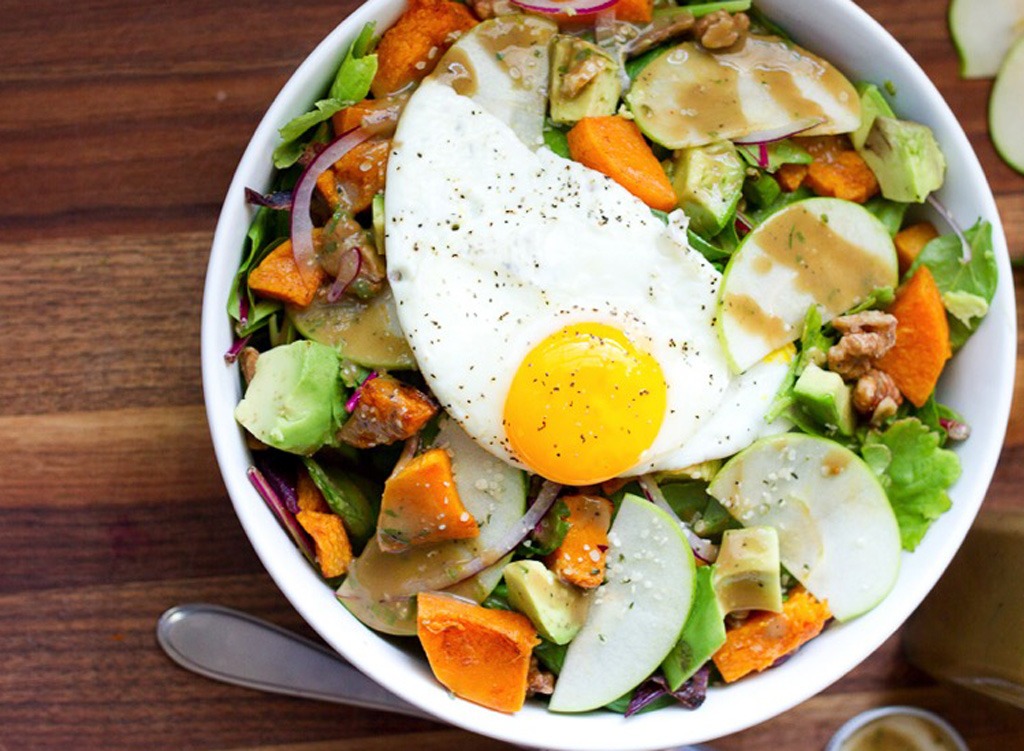
Yes, avocados are full of healthy fats and anti-inflammatory compounds, but that doesn’t mean you can eat the whole fruit in one sitting. The issue comes from the fact that when we perceive a food to be nutritious and healthy, we may let our guard down when it comes to being careful about counting calories, which can ultimately lead to overeating or feeling entitled to indulge, according to a study done by Cornell University researchers. Remember: even good-for-you foods have calories and portion control always matters. That’s why we found these 30 Healthy Foods You Better Eat in Moderation.
You Should Start Your Diet With a Detox
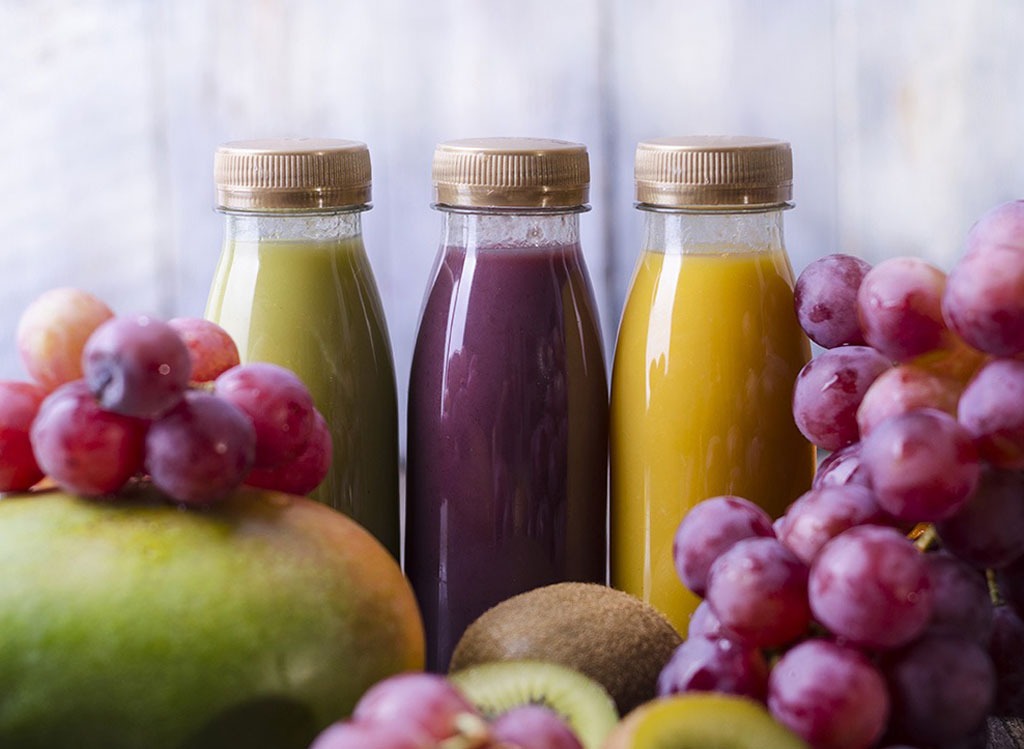
Juicing may be America’s #1 prefered way to rid your body of toxins, but this hotly debated practice isn’t always the safest—or most effective—way to flush out your body. First of all, your liver does a pretty good job of ridding your body of toxins on its own, and juicing or drinking lemon water hasn’t been proven to do much to help this process. What we do know, however, is that going on a low-calorie cleanse will likely cause you to feel lethargic: “Without enough calories and energy, you could feel weak, have headaches, or have low energy,” explains Jim White RD, ACSM, owner of Jim White Fitness & Nutrition Studios. Feeling tired before you even start your diet doesn’t sound like you’d be starting off on a strong foot.
You Deserve a Reward For Working Out
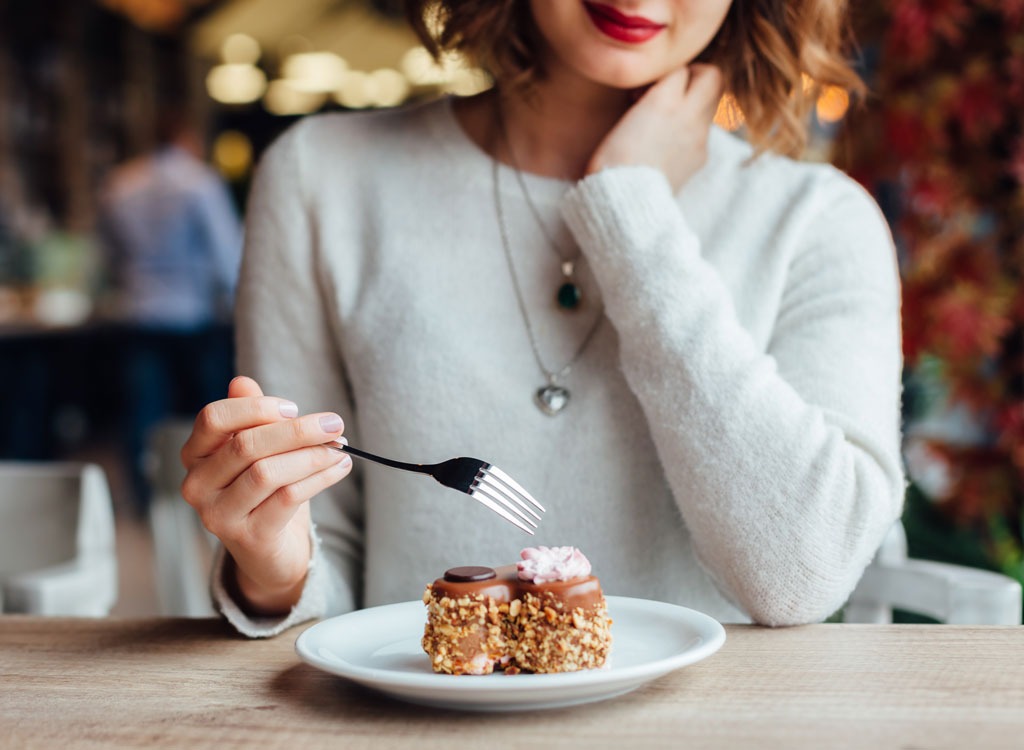
In a weight-loss regimen, the point of exercising is primarily to build calorie-burning muscle mass; it’s not to burn off enough calories so you can splurge on junk food. Not only will treating yourself to extra treats as a reward for exercise cancel out the calorie-burning benefits of exercise, but it also will serve to maintain your reliance on bad-for-you junk foods that you don’t need in your diet. Instead, reward yourself in other ways, like with these 25 Genius Ways to Reward Yourself After Weight Loss.
You Need To Cut Back on Carbs
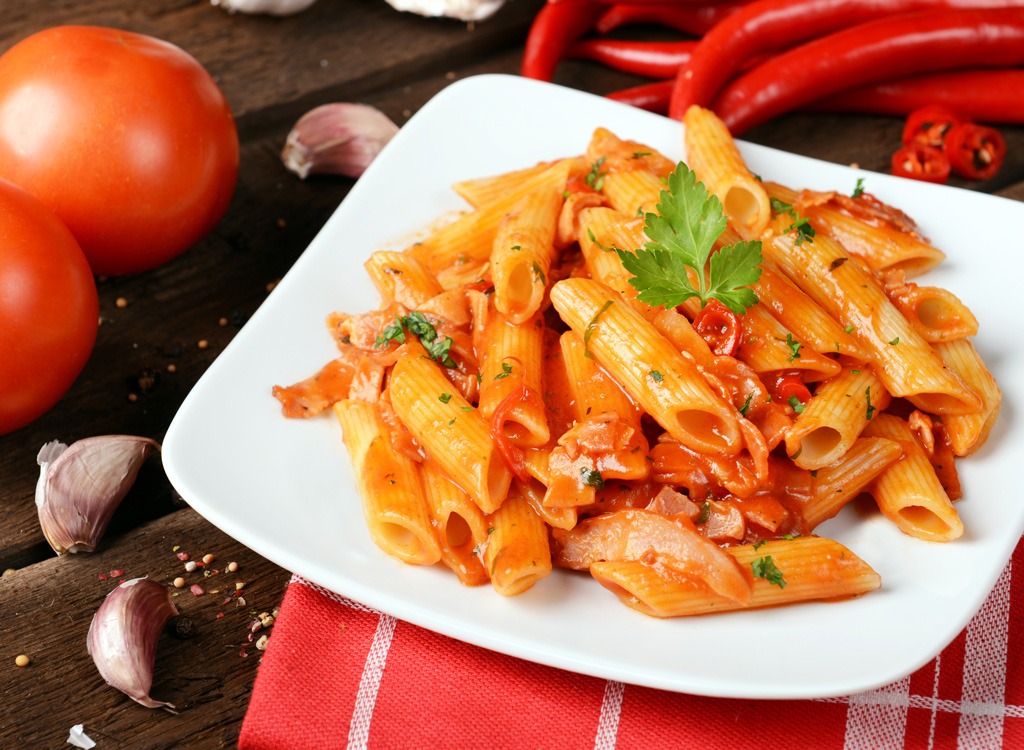
Although low-carb diets can be effective for short-term weight loss, you don’t need to go low-carb to see the number on the scale dip. Complex carbs, like legumes, apples, and quinoa, are not the enemy, it’s the refined, or simple carbs, that you need to watch out for. Refined carbs digest quickly and spike blood sugar, boosting hunger, while fiber-rich complex carbs digest slowly and keep blood sugar levels steady, aiding weight loss. And because carbs are our main source of energy, when you don’t eat enough of them, you can begin to feel lethargic and weak, which won’t make you feel good, and could lead to indulging in high-calorie comfort foods.
You Can Eat Whatever As Long as You Count Calories
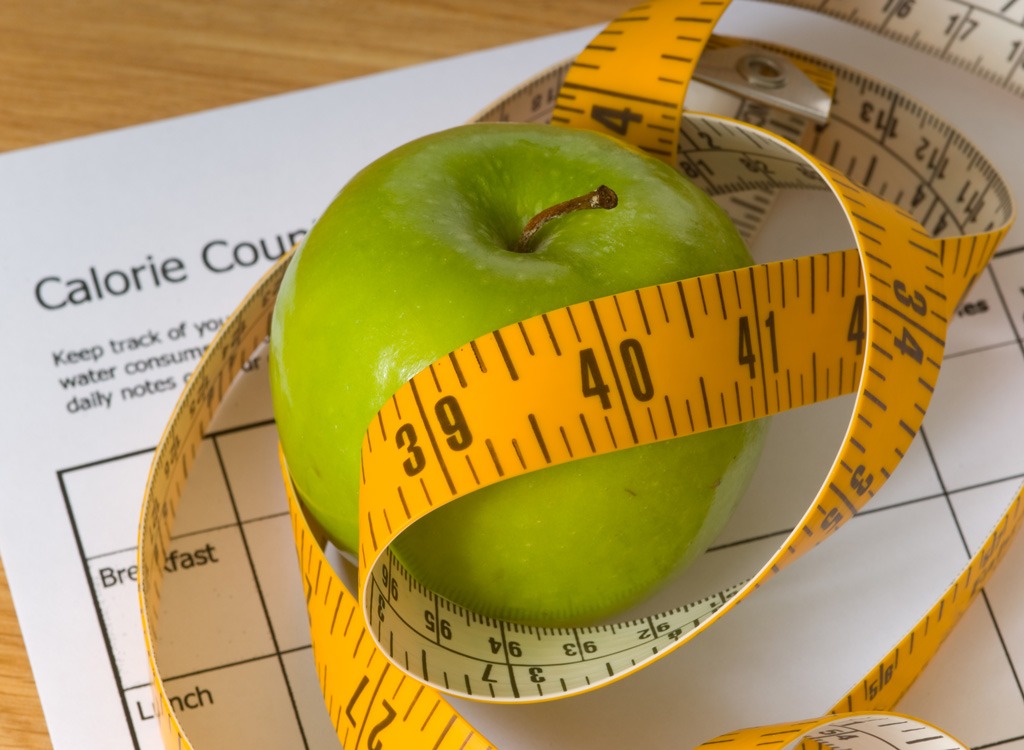
You’ve heard of the nutritionist who lost weight eating McDonald’s and another who lost weight eating Twinkies. It was all to prove that a calorie is a calorie is a calorie when it comes to weight loss. And while that may be true in the short term, it’s not necessarily the way to go about your diet. That’s because calorie counting isn’t a long-term solution. Do you want to weigh your food every day before you eat it? Instead of counting calories, you should focus on a more sustainable approach that focuses on eating wholesome foods like fresh produce, lean proteins, and healthy fats.
You Should Skip Meals To Stay In Your Calorie Budget
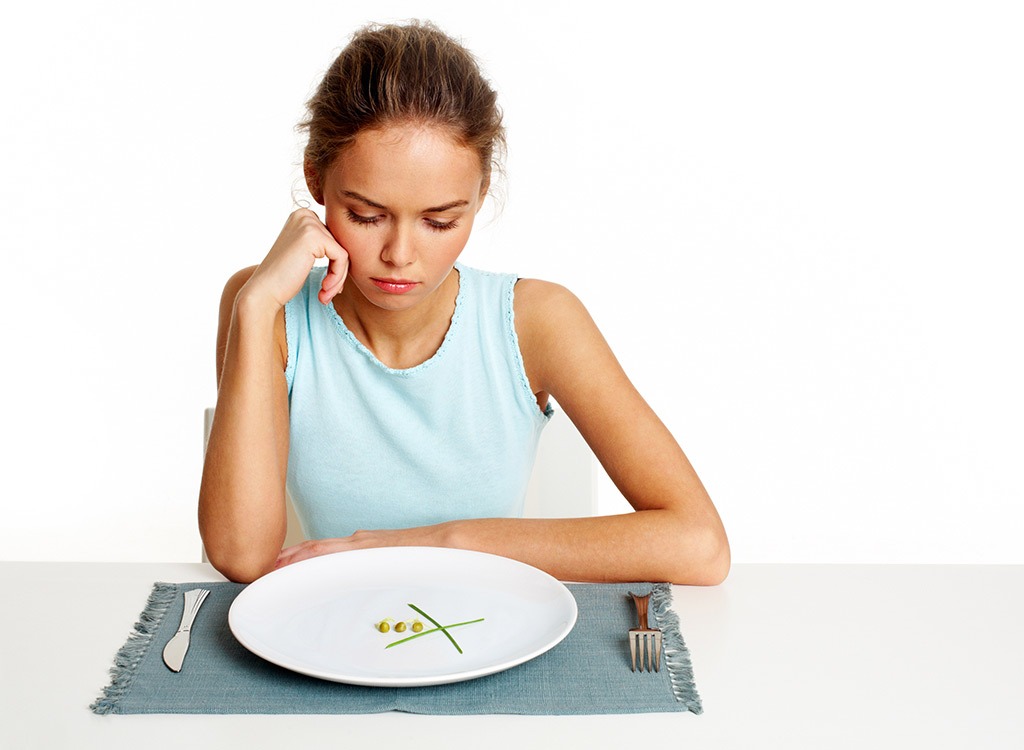
Have you ever skipped a midday meal because you knew you were going out later? If you have, it might very well be responsible for your expanding waistline. That’s because skipping meals slows your metabolism and boosts your hunger hormone levels. It puts your body in prime fat-storage mode and increases your odds of overeating at the next meal. To keep your energy levels stable throughout the day, focus on eating protein-packed, low carb snacks or small meals every 3 to 4 hours.
You Can’t Eat After 8 PM
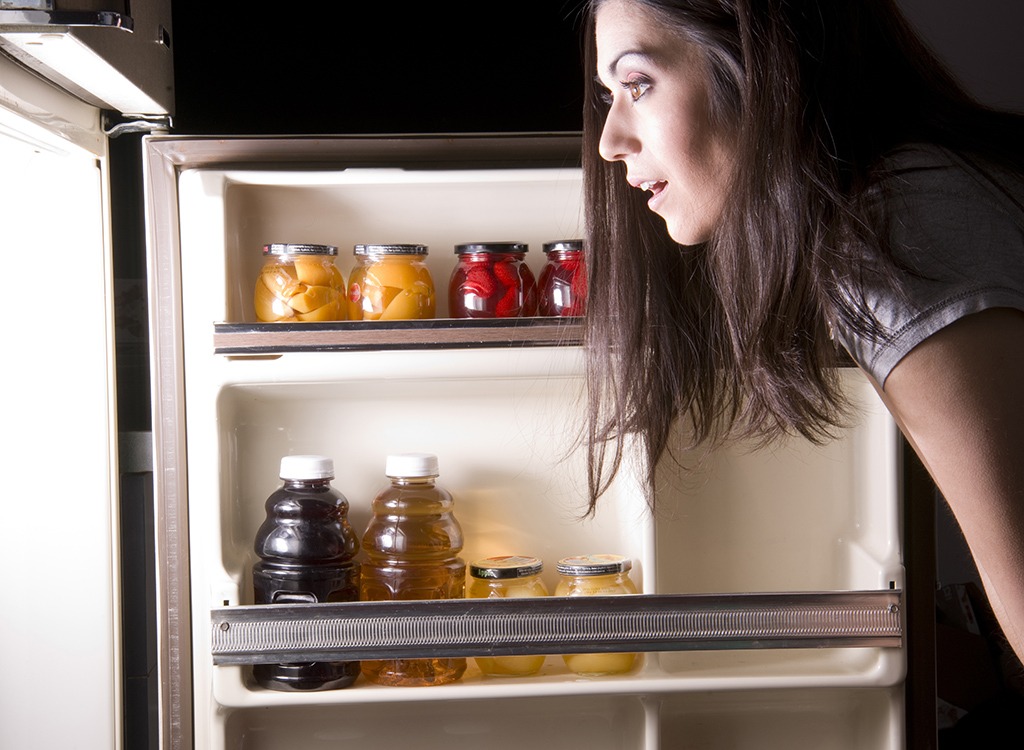
Have you ever heard that your body’s digestive system “turns off” when you go to sleep, so any food not digested by the time your head hits the pillow will automatically be turned to fat? It’s a myth! “Your body’s processes never shut off,” says personal trainer at A-Team Fitness, Alexander M. McBrairty, NASM. This misconception stems from the observation that many people who snack late at night tend to weigh more than those who stop eating after dinner. Research has uncovered the reason behind this: people who snack late at night tend to binge eat or make poor food choices that are high in calories. Eating before bed is not necessarily a diet no-no, in fact there are actually some foods that help you fall asleep.
You Should Eat Less Fat to Lose Fat
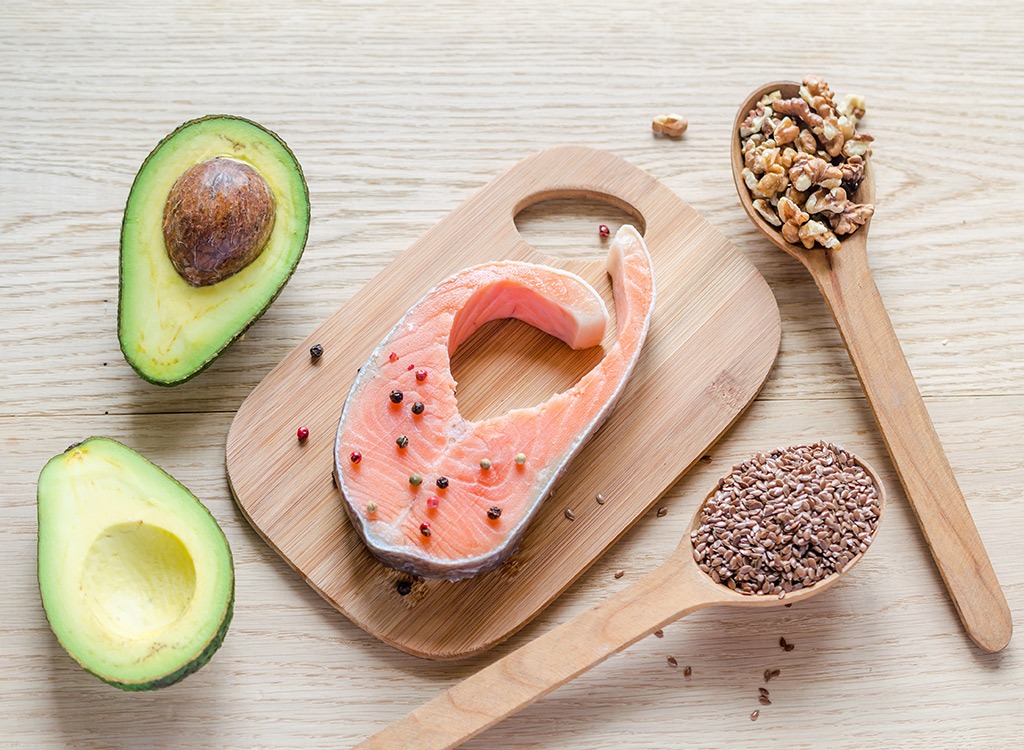
No, eating fat does not automatically make you fat. While, yes, fats contain more calories per gram of food than carbs or protein (9 calories per gram compared to 4 calories per gram), fats can—and should—be a part of a healthy diet. In fact, Harvard researchers found that after participants lost an equivalent percentage of body weight, those who followed a low-fat diet (20 percent of calories from fat) were more likely to regain weight compared to those following a higher fat diet (40 percent of calories from fat). Studies have also connected those who consume whole-fat dairy products with having lower BMIs than those who opt for skim. Healthy fats—such as olive oil, coconut oil, avocado and omega 3s—are critical to fending off weight-inducing inflammation and promoting feeling of satiety. Get the complete picture with our helpful insights into What Happens to Your Body When You Don’t Eat Enough Fat.
You Should Give Up Gluten
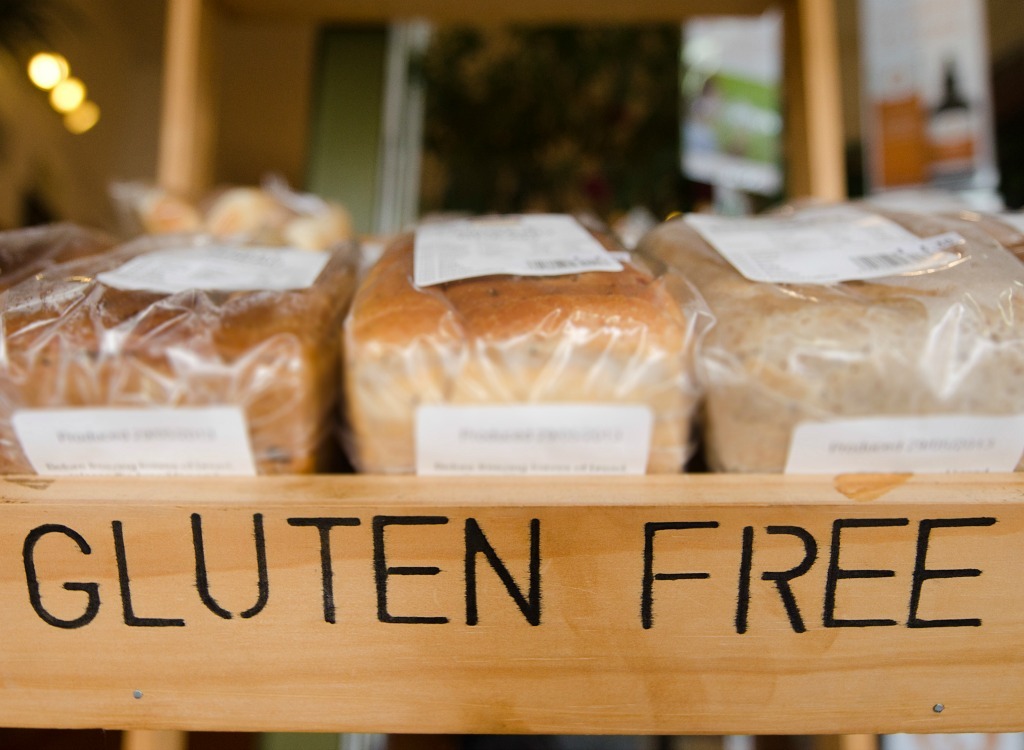
For people with celiac disease or a gluten intolerance, eating gluten-free is a necessity. But for those who think “gluten-free” means “weight loss-friendly,” beware the health halo. “Most gluten-free breads are made from refined grains, like white rice flour. These breads have double the carbs of whole-wheat breads,” shares Nashville-based nutritionist Sarah-Jane Bedwell, which means they’re even more likely to spike your blood sugar (aka spike levels of fat-storing insulin and make you hungry more quickly). Instead, focus on eating more whole grains and work on cutting out processed foods like sugary cereal and crackers. “A diet rich in vegetables and free of processed fare and can aid weight loss more effectively than simply trading in a gluten-filled food for gluten-free varieties. It’s also far more nourishing,” Isabel Smith, MS, RD, CDN, tells us.
If You Can Replace A Meals With Smoothie, You Should
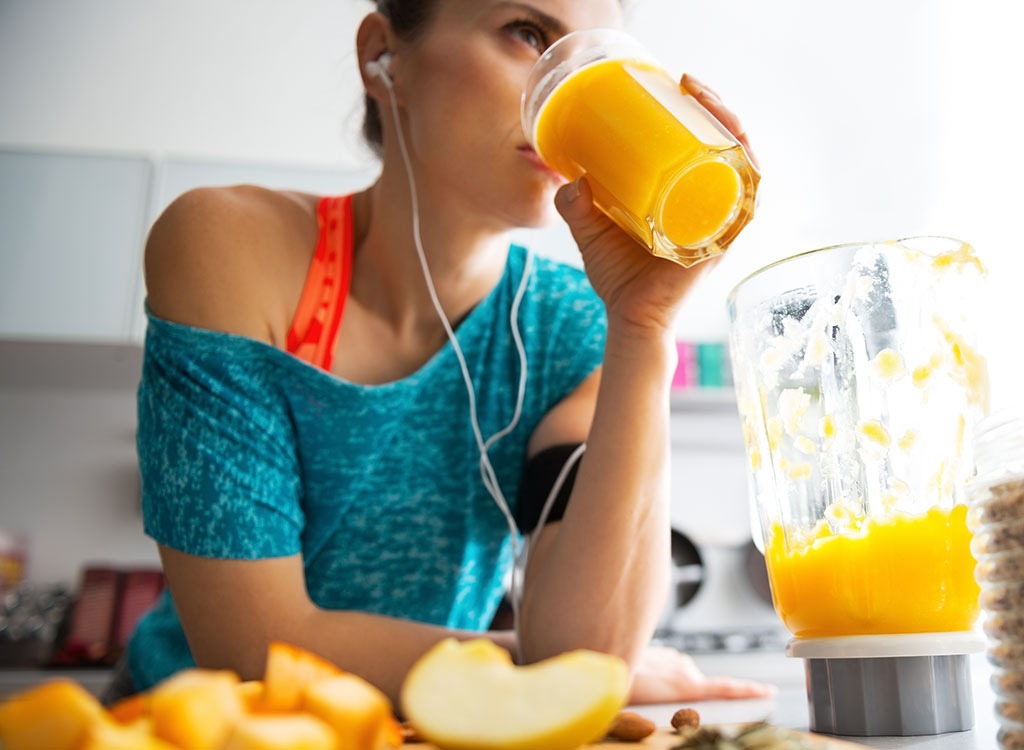
When made with the right ingredients—including protein, fiber, and healthy fats—a smoothie can be a quick, and healthy breakfast. Unfortunately, many times smoothies are huge whacks of carbs and sugar, only made with fruit and sugary juices. Not only will these carbs spike your blood sugar and send your hunger raging back with a vengeance shortly after you’ve eaten, but studies have shown that low-fiber, liquid calories are not nearly as satiating as calories from solid foods. And that means we have to drink more of the beverage (and consume a greater number of calories) before we finally feel satisfied.
You Shouldn’t Obsess Over The Scale
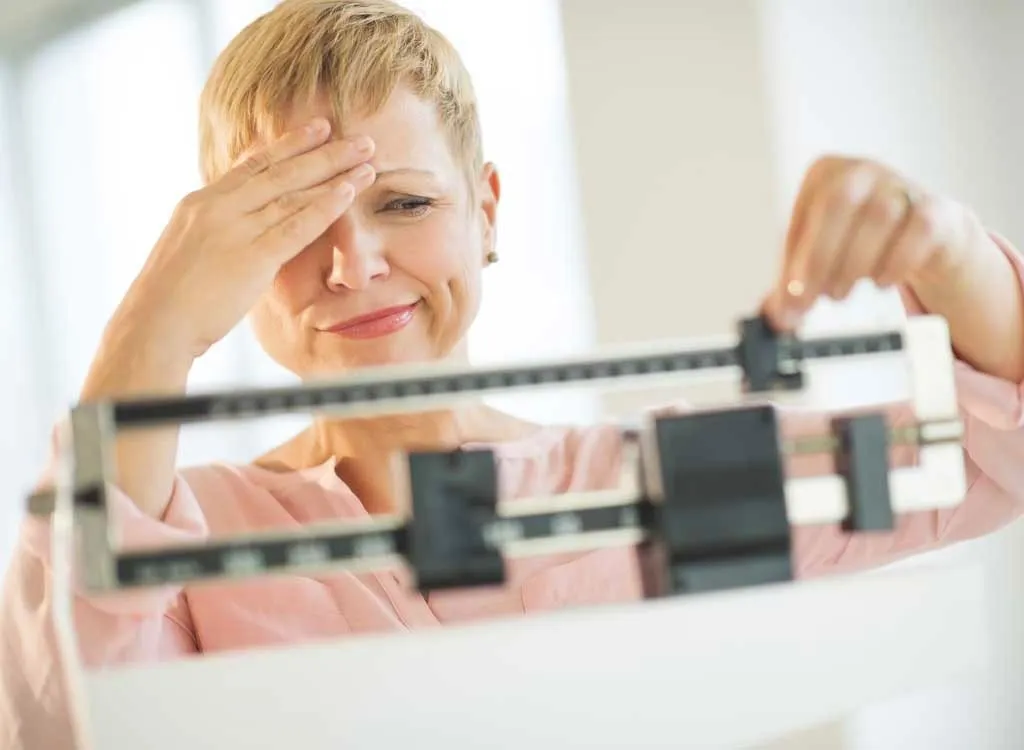
Obsess? No. Neglect? Also no. You see, although it may feel like stepping on the scale every day can be a torturous reminder of slow progress, a 2015 Cornell University study suggests that it’s actually an effective approach to weight loss. According to senior author David Levitsky, people who weigh themselves daily and track the results are more likely to lose weight and keep it off than those who check in less often. The method “forces you to be aware of the connection between your eating and your weight,” Levitsky said in a press statement.
You Should Stick to Salads for Lunch
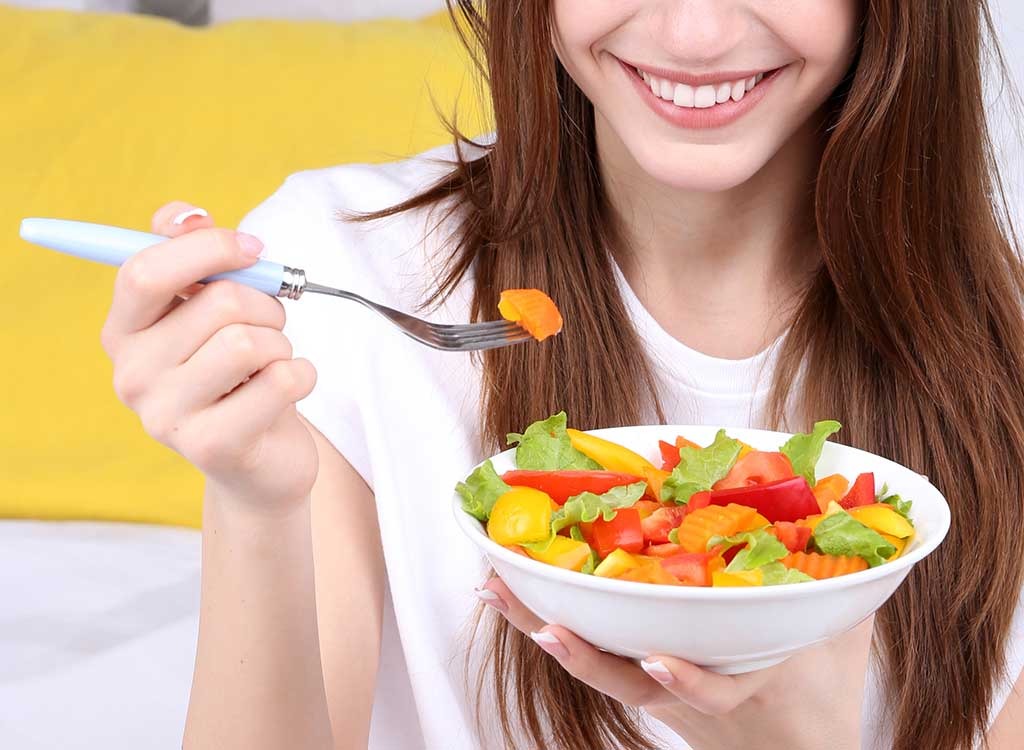
Have you ever ordered a salad, polished it off, and felt hungry 30 minutes later? We’ll be the first to admit we have. The reason why? A poorly-built salad is made entirely of carbs—with no staying power of satiating protein (chicken, beans, or fish) or healthy fats (avocado or nuts). Without enough fuel to keep you going, you’ll likely be delving into your office snack drawer sooner than you’d like. And even if your salad is balanced, not all restaurant offerings are waistline-friendly; in fact, some restaurant salads have more calories and fat than a Big Mac!
You Need to Avoid All Sugar

By this point, you likely know that eating too much sugar is linked to diabetes, insulin resistance, obesity, and metabolic disorders. But don’t let that scare you off from all carbs—especially those from sugary fruits. Sure, fruit sugar is processed the same way in your body as added sugars, but fruit is also packed with cancer-fighting antioxidants, water to help fill you up, and fiber to slow the digestion of those sugars—preventing your blood sugar from spiking like nutritionally-deficient refined sugar does. In fact, countless studies have found that increased fruit consumption is tied to lower body weight and a lower risk of obesity-associated diseases. So don’t ditch it!
You Can Rely On Fat-Blasting Superfoods

Sorry, but there’s no magical cure-all food that will make you drop all the weight you hope to lose. Sure, apple cider vinegar has been found to delaying gastric emptying and thus keep you fuller for longer, but just because you take a shot of it every day doesn’t mean you can leave your diet unchanged. Feel free to drizzle that ACV on your salad, but make sure you’re also cutting out junk food, working out, and avoiding doing these 50 Little Things Making You Fatter and Fatter.
You Buy “All Natural” & Organic Groceries
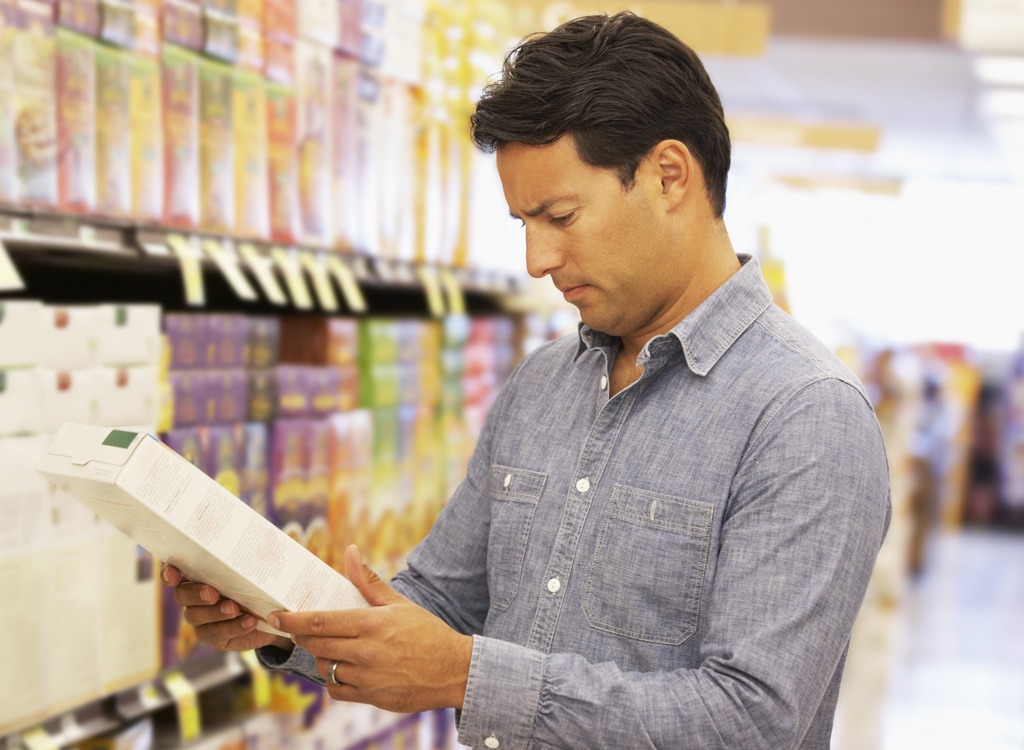
Marketers are onto us. They know we’re looking to eat healthier, and that’s why they’re slapping on claims that their product is “fat-free” or has “zero added sugar.” They’re smart for doing so, too, because people tend to guess snacks labeled “organic” are lower in calories, more nutritious, and tastier than the exact same snacks without the “organic” label, according to Cornell University researchers. The only problem? Health-food buzzwords like “organic” or “GMO-free” don’t mean a food is healthy—you have to read the nutrition label for that. To find out which snacks to toss out of your kitchen, read up on these 25 Worst “Healthy” Snacks for Weight Loss.
You Can Splurge On “Diet,” “‘Zero Calorie” Beverages
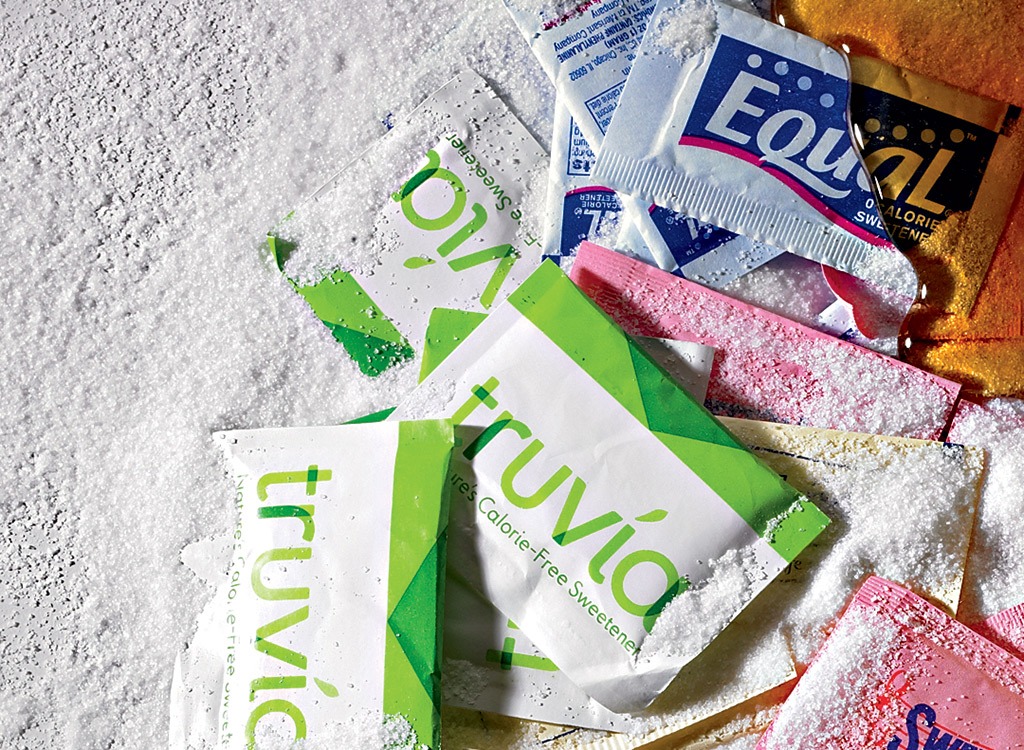
Sorry, diet-soda lovers. These calorie-free options aren’t going to help you trim down; In fact, they may have the opposite effect on your gut. While you’re saving yourself calories and grams of sugar, continuing to satiate your sweet tooth will only maintain your reliance on the stuff, making it more likely you’ll break your willpower to indulge in a treat. Plus, studies have shown that artificial sweeteners can damage your gut health, which can also buffer your chances at weight loss success. The bottom line: Either switch to seltzer, or if you’re craving something sweet, skip “sugar-free” options and sip (or eat) what you’re really craving in moderation.
You Need To Get A Ton of Sleep
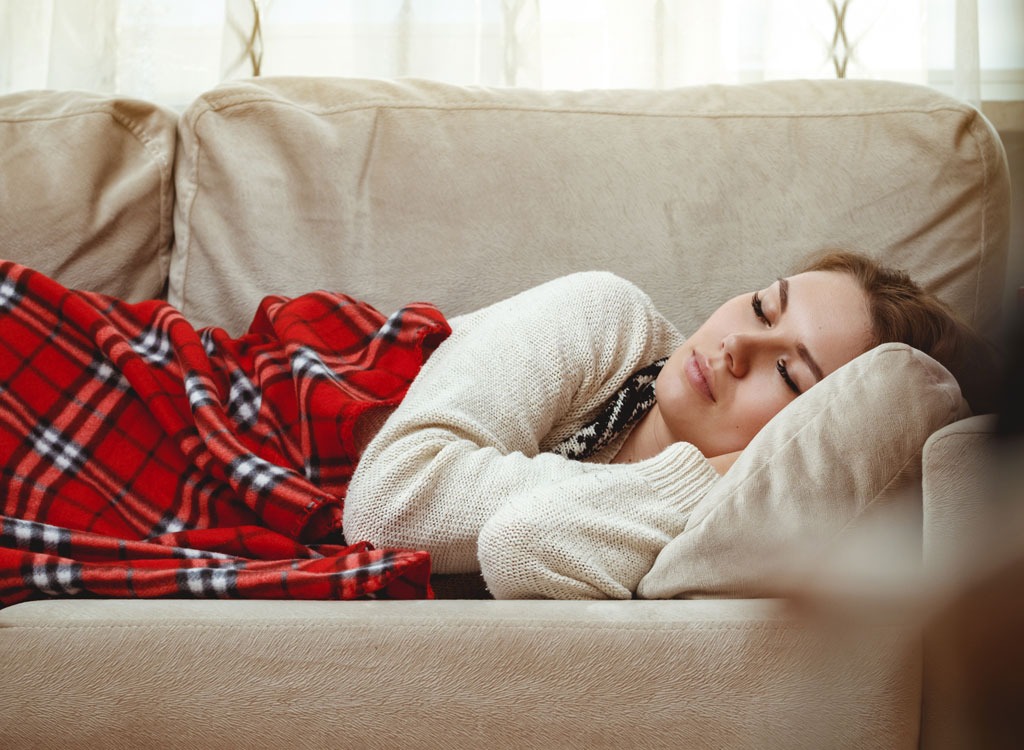
For those of us who barely get 6 hours a night, it may sound crazy that there’s such thing as “sleeping too much,” but there is. And rather than merely preventing you from losing weight, it could actually be causing you to pack on the pounds. In fact, Wake Forest researchers found that dieters who sleep five hours or less put on 250 percent more belly fat than those who sleep seven to eight hours a night, while those who sleep more than eight hours pack on only slightly less than that. Experts speculate the weight gain could be due to the extra inflammation induced by increased levels of inflammatory factors known as CRP: a compound your body produces while you sleep.
You Should Be Guzzling Bottled Water
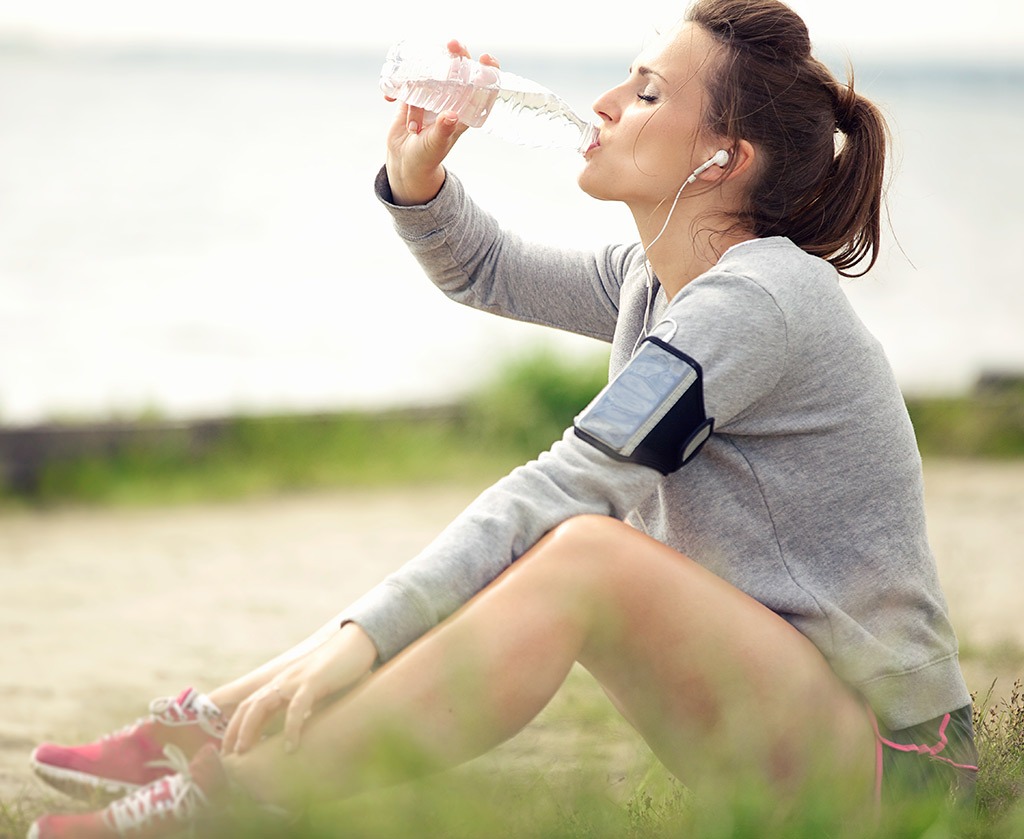
Drinking water from a plastic bottle is like highlighting a note with an eraser: you’re basically undoing all your weight loss progress. Staying hydrated is crucial for regulating your hunger pangs and maintaining your metabolism, but we hope you’ll reconsider that bottled water you’re drinking. Plastic bottles contain a compound called Bisphenol A, commonly referred to as BPA, which has been linked to obesity: A Harvard study found that adults with the highest concentration of BPA in their urine had significantly larger waists and odds of being obese than those in the lowest quartile.
You Must Adhere To A Diet
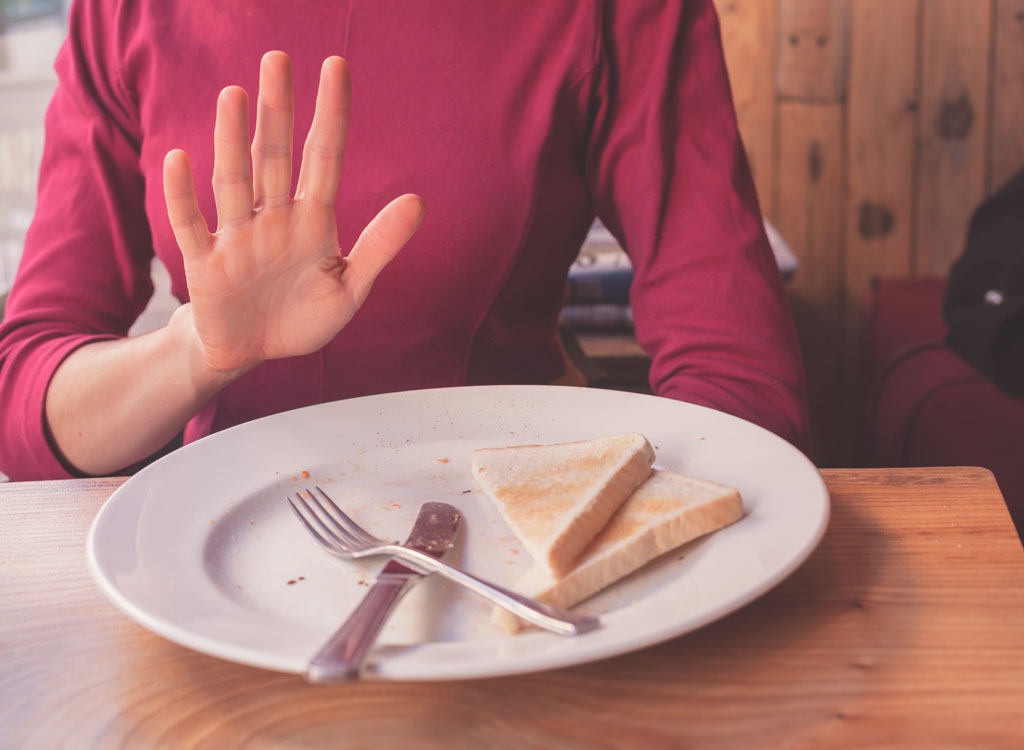
It may come as a shock, but you don’t have to follow a diet to lose weight. Trying out Whole30 or Paleo may be a good jumping off point, but don’t let these restrictive diets turn into a be-all-end-all. When it feels like you’re required to adhere to a vehemently structured diet, it can cause you to feel guilty or stressed if you break the diet. Rather, focus on eating a variety of healthy foods and stick to the right portions. Maybe try the 80-20 rule (one of the 47 Best New Weight Loss Tips of the Year: You eat well 80 percent of the time and leave 20 percent to splurge.
